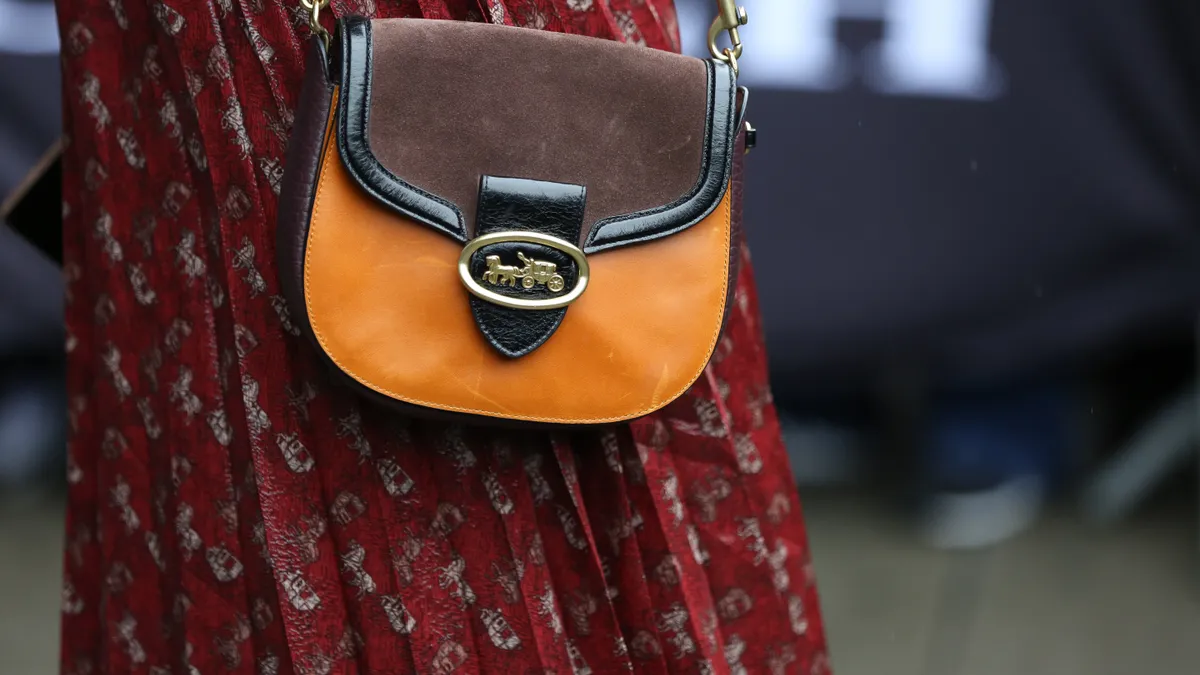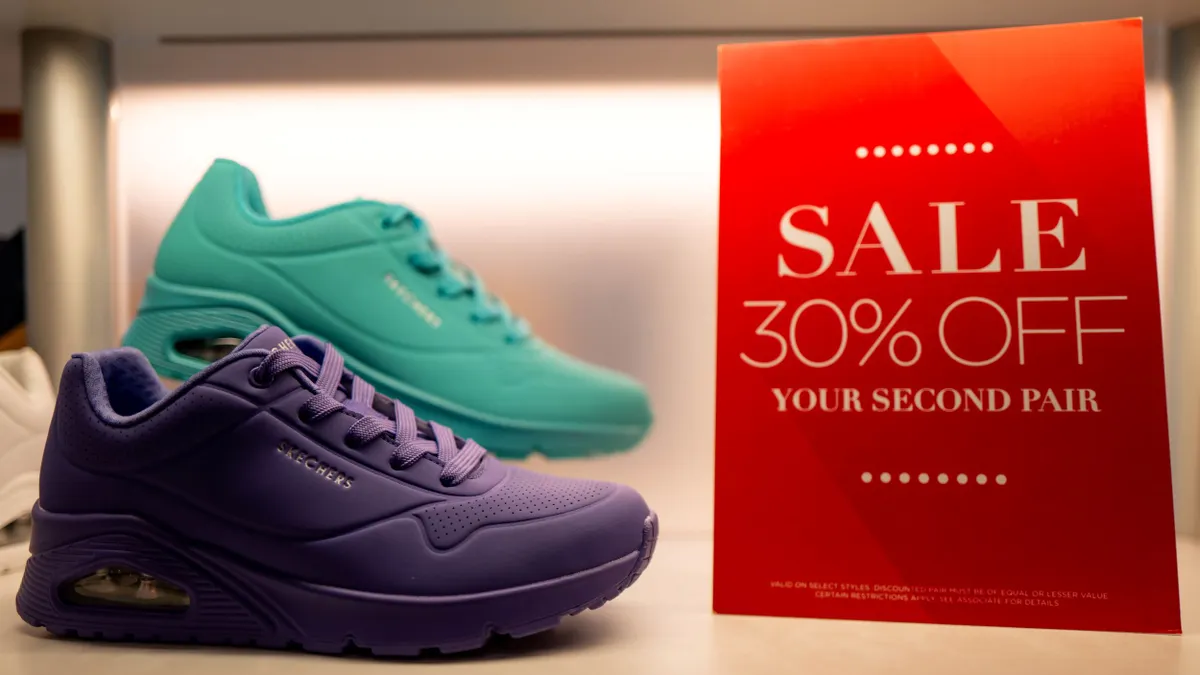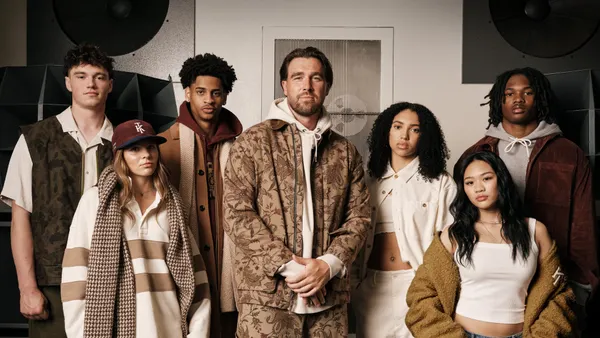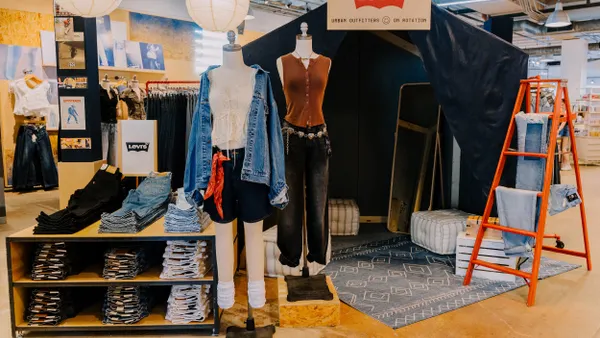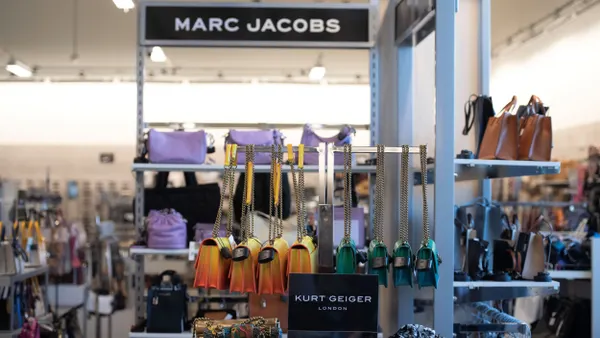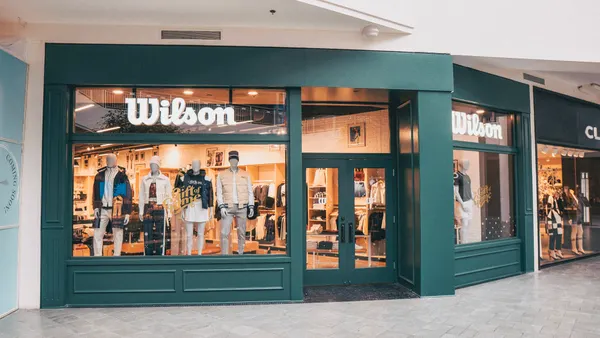Dive Brief:
- Tapestry Inc. reported flat earnings for Q1 on Thursday, with sales of $1.51 billion versus $1.50 year over year, showing a modest 0.46% rise.
- Coach, the company’s largest brand, saw 3.4% sales growth to $1.16 billion from $1.12 billion for the same period last year, while the company’s other two brands experienced losses. Kate Spade dropped 5.8% to $303.2 million, and Stuart Weitzman dropped 19.4% to $52.6 million.
- The company stated that e-commerce sales represented “nearly 25% of revenue,” or “approximately three times above pre-pandemic levels.” The company has been building its digital channel, and last year reported that on a two-year basis, “Digital revenue increased over 35%.”
Dive Insight:
The earnings come ahead of the company’s merger with rival Capri Holdings, which is expected to close in 2024. When that’s complete, Capri brands Versace, Jimmy Choo and Michael Kors will join Tapestry, and the resulting conglomerate will become the fourth largest luxury house in the world, with a combined share of around 5.1% of the global luxury goods market, according to Wells Fargo analysts. In addition, Wells Fargo analysts previously told sister publication Retail Dive the new firm will become “the number one player in the accessible luxury handbag market in the US by a wide margin.”
In the meantime, Tapestry is battling some of the headwinds that have hit the rest of luxury, said Neil Saunders, managing director of GlobalData, in emailed comments.
“Given the general slowdown in the luxury market this somewhat flat outcome isn’t too bad, especially as once currency fluctuations are stripped out, underlying growth comes in at around 2%,” he said. “Even so, the numbers give the impression that the group is running out of steam as consumers start to curtail spending.”
The company's international revenue rose by single digits in Asia, boosted by solid sales in Japan and China, while revenue in North America stayed “approximately in-line with the prior year amid a difficult consumer demand environment.”
Saunders said Coach, which has more of an international profile, has helped to lift the numbers, “especially in Asia where sales in China grew rapidly,” while “Kate Spade and Stuart Weitzman are more exposed to the relative sluggishness of the North American market.”
The Coach brand’s push to connect with younger customers has also helped boost revenue. In addition to its continuing partnerships with Gen Z-facing celebrities such as musician Lil Nas X, Coach has also focused on circular fashion through its Coachtopia sub-brand, which Saunders said “resonates with the younger consumer and strengthens Coach’s hand in the valuable circular fashion space.”
The company also managed to trim and tighten its overall inventory, and showed that Q1 ended with inventory levels 17% lower year over year.
“We achieved record first quarter revenue and EPS as we continued to successfully advance our strategic growth agenda against a dynamic external backdrop,” CEO Joanne Crevoiserat said in the release. “Our strong and consistent results demonstrate the power of brand building and customer centricity, underpinned by the creativity of our talented global teams and disciplined execution.”
Saunders said that overall, “Tapestry is in a good place.”
“However, gains are clearly becoming harder to achieve - which is why the acquisition of Capri is attractive,” Saunders said. “This will add a new growth narrative, but it also comes with a host of issues that will need to be resolved.”



